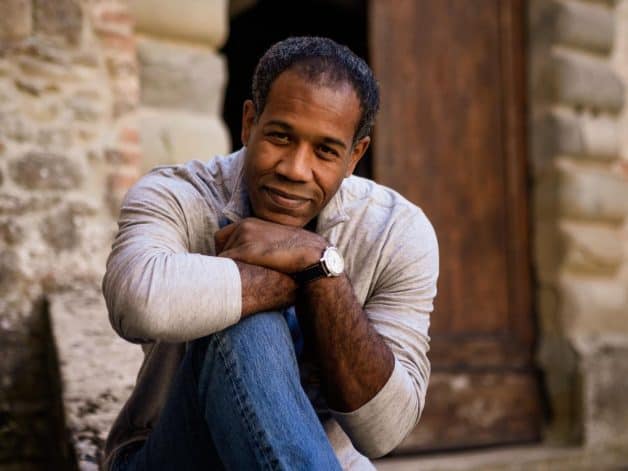The PEN Pod: Getting Reacquainted with Ourselves with Gregory Pardlo

Photo by Marco Giugliarelli for Civitella Ranieri Foundation
It’s the end of another week, and today on The PEN Pod, we’re with award-winning poet, writer, and teacher Gregory Pardlo, whose book Digest won the 2015 Pulitzer Prize for poetry. We spoke with Gregory about why he’s turning to craft books during his time at home, what’s happening in the literary community now, and the value of becoming reacquainted with our old selves and our loved ones. Listen below for our full conversation.
What’s happening right now to the literary community as a result of coronavirus-related closures?
There’s a lot of checking in. My sense of the literary world now seems more fundamental, closer to what I felt back in the ’90s. But my sense of connection to the literary community, I think, is more conceptual than physical than it has been, with all my traveling around.
“It’s an opportunity to appreciate what I have done with my life and what I still want to do. It’s kind of a monkish, forced turn inward, to take stock.”
What kinds of literature are you turning to right now? Is humor something that you think is helpful, in moments of uncertainty?
It should be, but that hasn’t been where I find myself gravitating toward. I mentioned the ’90s; I think I’m not only reacquainting myself with my library, but reacquainting myself with who I am, who I once was, the origins of my writing life and ambitions. I’m looking at some of the old craft books that I slept with as an MFA student and as a recent MFA grad. For example, right here on my desk is Poets Teaching Poets: Self and the World, edited by Ellen Bryant Voigt and Gregory Orr. There are a couple other craft books that I spent a lot of time with. What’s interesting, too, is I’m finding my annotations to be incredibly entertaining—the things I was thinking about, the things that I cared about at the time, old receipts from book purchases, train tickets, things that I used as bookmarks are still in there. Like I said, it’s a kind of reacquainting with my former self, and re-establishing a through line of where I was and how I got here. It’s an opportunity to appreciate what I have done with my life and what I still want to do. It’s kind of a monkish, forced turn inward, to take stock.
“Having the time to work through the mundane concerns and slip into the more abstract rabbit holes and turns in each other’s minds has turned out to be a really unexpected joy.”
Speaking of community, I think a lot of relationships are in flux—personal relationships, family relationships, romantic relationships. As a writer, how are you seeing the changing nature of relationships right now?
Personally, the biggest impact is getting to spend time with my kids and getting better acquainted with their literary educations. I find that we’re reading together in a way that we hadn’t been in a number of years. We’re talking about what we’re reading in ways that we hadn’t been in a long time. I think everybody’s got the same joke in mind—that the good thing about this situation is that it’s bringing families together, and the bad thing about this situation is that it’s bringing families together. And we may survive the virus, but we may not survive the extended interactions. [laughs] I had a conversation with my wife just yesterday, and the conversation went down rabbit holes that we would not ordinarily have pursued—the typical conversation about money and are we gonna take advantage of the plummeting interest rates right now and try to refinance the house—but the conversation turned, and I found myself making notes for poems. My wife’s way of thinking about the world is one of the reasons we got married in the first place; I enjoy her mind, and having the time to work through the mundane concerns and slip into the more abstract rabbit holes and turns in each other’s minds has turned out to be a really unexpected joy. As a writerly concern, that’s probably the biggest boon to this forced sequestering. It’s re-experiencing old territory in a number of ways.
Send a message to The PEN Pod
We’d like to know what books you’re reading and how you’re staying connected in the literary community. Click here to leave a voicemail for us. Your message could end up on a future episode of this podcast!






